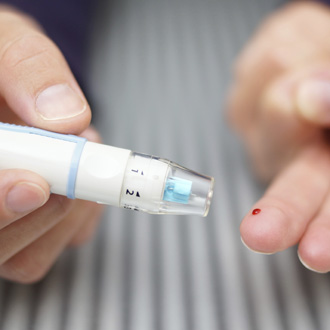Excess deaths due to diabetes have declined in England in recent years but are unlikely to continue to fall because of a lack of progress on measures of good patient care, a report from the National Audit Office has concluded.
The National Audit Office (NAO) found that people with diabetes were 34% more likely to die than the general population in 2013 – an improvement on 2011, when they were 44% more likely to die.
But the auditors also highlighted that 22,000 people are still estimated to be dying from diabetes-related causes that could potentially have been avoided.
And they found that the proportion of people receiving the full complement of NICE-recommended care processes in 2012-2013 had not improved further since the NAO last reported on these in 2009-2010, remaining at around 60%, while there was marked variation across CCGs.
Meanwhile, performance on NICE standards for achieving control of glucose, cholesterol and blood pressure levels had only improved as a result of relaxing the blood pressure target.
Amyas Morse, head of the National Audit Office, said: ‘Data available since we last reported on diabetes services shows that there was an improvement in delivering the nine key care processes that the NHS has identified as essential for diabetes patients. These improvements have been reflected in an uplift in long-term outcomes for these patients.’
‘However the improvements in delivery of these key care processes have stalled, as our report shows, and this is likely reflected in a halt to outcomes improvement for diabetes patients.’
Among several recommendations, the report called for GP practices to be obliged to provide complete data on their performance on the recommended processes and treatment targets, and for individual practice-level data to be made public.
It stated that NHS England ‘should ensure gaps in data are filled and that clear, high-quality information is available to help improve services’, and that this meant addressing ‘in particular’ the fact that ‘not all GP practices provide data on their performance’ and that ’GP practice level data on these are currently not publicly available’.
It also called for new targets to be introduced for care of specific groups of patients such as those with type 1 diabetes and younger patients, who receive worse care, and said NHS England should ‘set out how it intends to hold CCGs to account’ for poor performance.

















